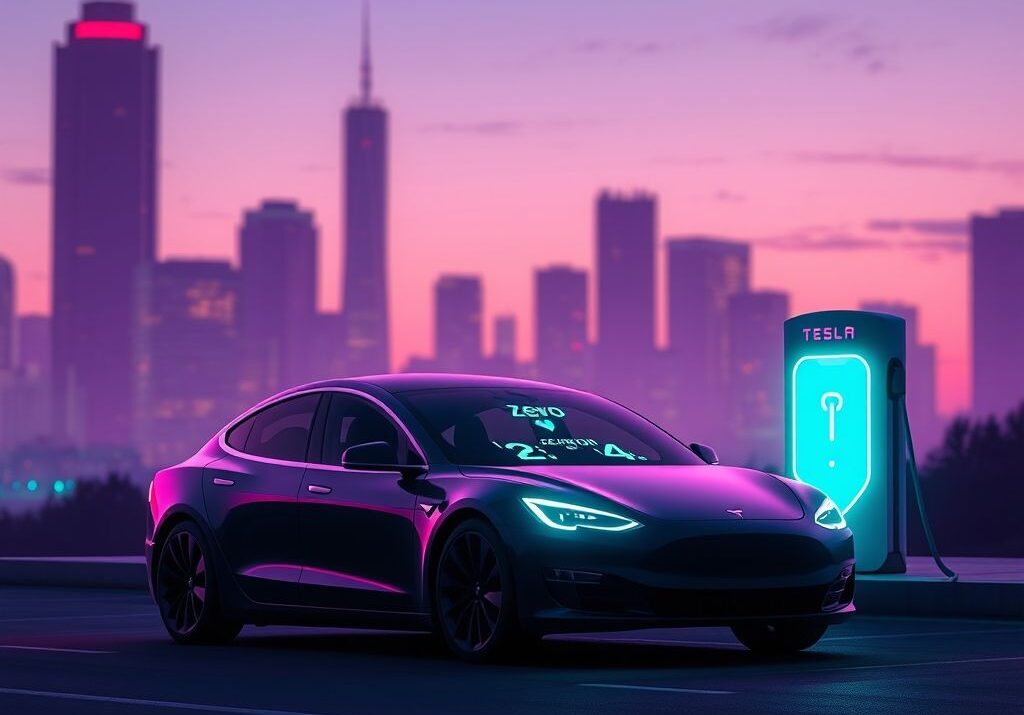Ever feel like your Tesla is just sitting there, silently judging you for not being on a road trip? What if I told you it could be making you money while you’re at work, asleep, or binge-watching your favorite show?
That’s the promise of Zevo, a fresh-faced startup I recently stumbled upon. Think Turo, but exclusively for electric vehicles. And get this: they’re laser-focused on helping Tesla owners turn their rides into income-generating assets.
According to a report by Statista, the global car sharing market is projected to reach $121.80 billion in 2024, suggesting that there is great potential in this market.
The genius of Zevo lies in its simplicity. Tesla owners list their cars on the platform, set their rates, and Zevo handles the rest – insurance, booking, and payment processing. Renters get access to a growing fleet of EVs for a fraction of the cost of traditional rentals, and owners pocket some serious cash. It’s a win-win!
For us in Cameroon, where the adoption of EVs is slowly but surely gaining traction, this kind of platform could be a real boost. Imagine reducing reliance on fuel cars, while making some extra income!
The shift towards electric vehicles is also undeniable. The International Energy Agency (IEA) projects that EVs could account for almost 60% of new car sales globally by 2030, meaning platforms like Zevo are poised for explosive growth.
So, why is this important? It’s about more than just making money (although that’s a definite perk!). It’s about:
5 Key Takeaways from the Zevo Model:
- Democratizing EV Access: Makes electric vehicles accessible to more people, helping to accelerate EV adoption.
- Unlocking Passive Income: Turns your Tesla into a money-making machine while you’re not using it.
- Contributing to a Greener Future: Encourages EV usage and reduces reliance on fossil fuels.
- Building a Community: Connects EV enthusiasts and fosters a shared passion for sustainable transportation.
- Smart Asset Utilization: Gets more mileage (pun intended!) out of existing resources, reducing waste and maximizing value.
Frankly, I’m excited to see how Zevo and similar platforms shake up the car-sharing landscape. It’s a clever solution that addresses multiple needs simultaneously, and it has the potential to drive significant positive change in how we think about transportation. It looks promising for Cameroon especially as more people embrace the idea of sustainable and economical transportation!
FAQs: Zevo and the EV Car-Sharing Landscape
-
What is Zevo and how does it work?
Zevo is a car-sharing platform exclusively for electric vehicles. Tesla owners can list their cars for rent, and users can book them for short-term use. Zevo handles the booking process, insurance, and payments. -
Is Zevo available in Cameroon?
As a new startup, Zevo’s availability might be limited. Check their website or app to see if they operate in Cameroon or have plans to expand there. -
How much can I earn by renting out my Tesla on Zevo?
Earnings depend on factors like location, Tesla model, rental rates, and availability. Zevo likely provides tools or calculators to estimate potential income. -
What are the insurance implications of sharing my car?
Zevo provides insurance coverage for rentals made through their platform. However, it’s crucial to understand the terms and conditions of this coverage and how it interacts with your personal auto insurance policy. -
How does Zevo handle vehicle maintenance and cleaning?
Zevo might have guidelines or recommendations for vehicle maintenance and cleanliness. Owners are typically responsible for keeping their cars in good condition. -
What are the benefits of using an EV-only car-sharing platform?
EV-only platforms promote sustainable transportation, offer access to a specific type of vehicle, and cater to environmentally conscious renters. -
How does Zevo compare to other car-sharing platforms like Turo?
The main difference is Zevo’s exclusive focus on electric vehicles. Other platforms like Turo offer a wider range of vehicles, including gasoline and diesel cars. -
What are the risks involved in sharing my car?
Potential risks include vehicle damage, wear and tear, and disputes with renters. Zevo’s insurance and support systems help mitigate these risks. -
What happens if a renter gets into an accident while driving my Tesla?
Zevo’s insurance policy would typically cover accidents that occur during rentals. The specific details of coverage and liability will depend on the policy terms. -
How does Zevo ensure the safety of renters and owners?
Zevo likely implements safety measures such as background checks for renters, vehicle inspections, and secure payment processing.








